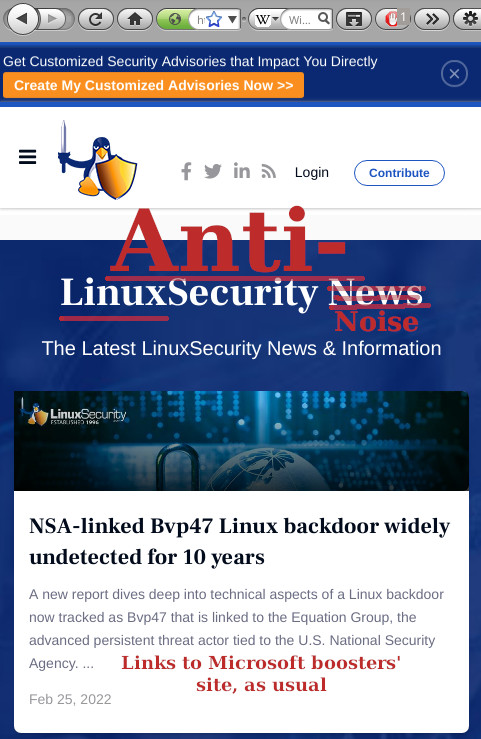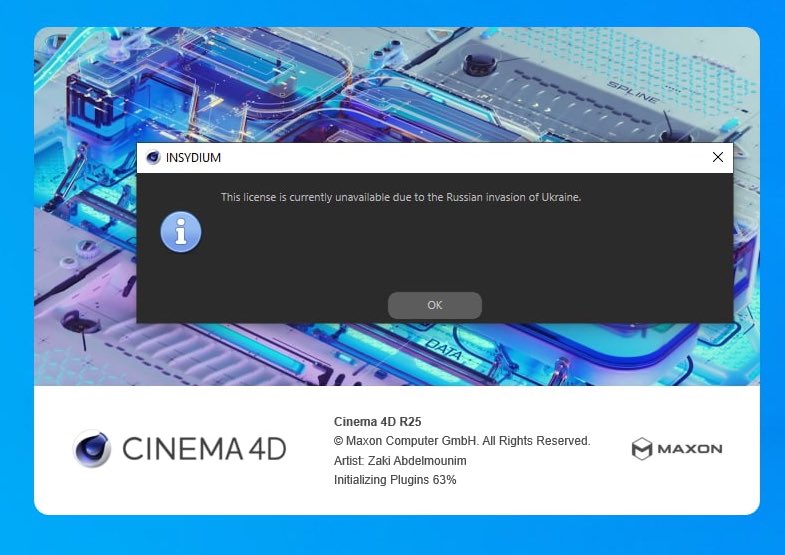
deec0aa1969f60b26c30d6f5fe4573e8
Invasion of Ukraine: The Tech Side
Creative Commons Attribution-No Derivative Works 4.0
THE other day (two days ago) Russia invaded Ukraine and we said we would refrain from making political comments, not because we lack an opinion but because it would distract from our focus. We're a technology site and we don't want to be derailed by politics like Mozilla or the EFF.
 Having said that, the video above covers apolitical aspects of what we've been seeing on the "tech" front. I've decided not to link to the FUD articles alluded to, instead just explaining what's wrong with them. The screenshot on the right is only minutes old (this latest news pick isn't an isolated incident but part of a longstanding trend, basically amplification of anti-Linux 'stories' without even the most fundamental fact-checking or smell test).
Having said that, the video above covers apolitical aspects of what we've been seeing on the "tech" front. I've decided not to link to the FUD articles alluded to, instead just explaining what's wrong with them. The screenshot on the right is only minutes old (this latest news pick isn't an isolated incident but part of a longstanding trend, basically amplification of anti-Linux 'stories' without even the most fundamental fact-checking or smell test).
Basically, one or two media outlets mentioned "Linux" in relation to the cyberattacks; this is disingenuous because Windows is what cripples Ukraine (sometimes DDOS attacks), as noted deeper inside the text of articles is somewhere between the lines (names of things). We've added some links to that effect over the past few weeks (in Daily Links). Secondly, there has been a mention of NSA back doors in relation to "Linux" (and APT), but this is a distortion of the term, unlike what Microsoft does with (and for) the NSA.
"It's a reminder that paying with cash, anonymously, has some advantages, sometimes unseen or underappreciated until it's too late."Next, as noted above, there's the issue of electronic payments making one subjected to discrimination and sanctions. It's a reminder that paying with cash, anonymously, has some advantages, sometimes unseen or underappreciated until it's too late.
At the moment there's a lobby for sanctions through "app stores", impacting people whose devices are remotely controlled by some companies, which also control the software one "purchased" or downloaded. DRM "licence servers", as shown below, have already kicked into gear.

Welcome to DRM-like "licence" servers